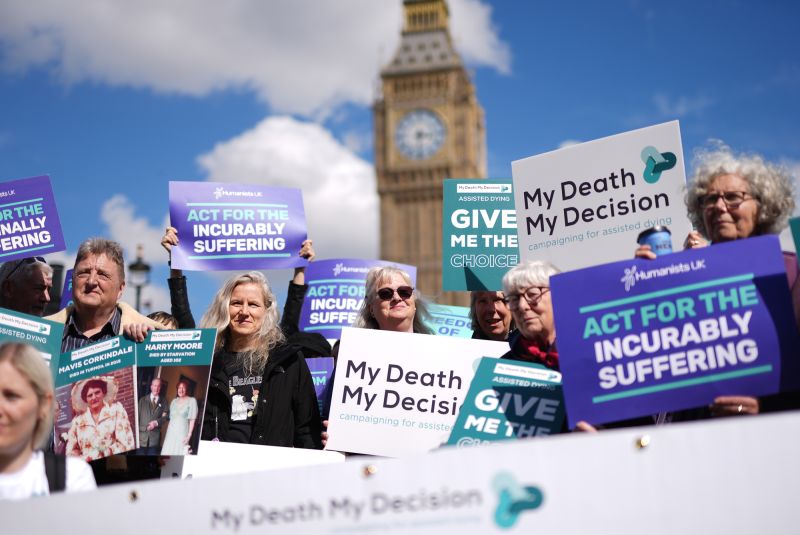The Assisted Dying Bill is a recent legislative proposal introduced in Britain’s House of Lords, stirring significant discourse and emotions across the country. This bill, intended to provide terminally ill adults the choice of an assisted death, has not only reinvigorated public conversations around the nuanced subject of euthanasia but has also activated a charged and emotional campaign in favor of and against its implementation.
The legislation is the product of a need to address an apparent societal issue that, until now, has opened individuals to unnecessary suffering as they grapple with the bitter realities of terminal illnesses. The salient features of the bill include a provision that allows a terminally ill patient, who is 18 or older and is likely to die within six months, the right to be provided with assistance to end their own life. The patient must be of sound mind and the request needs to be approved by two independent doctors and a High Court judge.
The proposed bill has stirred a deeply emotional campaign as advocates and opponents, both, make passionate appeals to legislators, policymakers, and the public at large. Advocates generally stress the importance of providing a dignified death, allowing individuals in unbearable pain, or those determined to avoid future suffering, the right to control their own mortality. In essence, they argue for a legislative framework that prioritizes autonomy, compassion, and the minimization of suffering for those grappling with terminal illnesses.
On the other hand, opponents of the legislation fear potential misuse and raise socio-ethical concerns. They suggest that the vulnerable, elderly, and disabled could be pressurized into assisted dying, either directly or indirectly. They also express concern that the bill, if passed, might erode trust in the healthcare system and undermine the importance of palliative care. Moreover, religious groups and individuals argue that life is sacred, and intentionally ending it breaches this inalienable sanctity. Some also fear that the bill may lead to a slippery slope, where it becomes easier to expand the boundaries of who can access assisted dying over time.
Amidst these vying interests, the Assisted dying bill has catalyzed several informative and emotional campaigns. One such campaign is Dignity in Dying, a group working to legalize assisted dying in the UK. The campaign considers the Assisted Dying Bill as a chance to minimize unwanted suffering by extending personal autonomy to the matter of life and death. Their advocacy is often charged with personal narratives of those who’ve experienced the trauma of seeing their loved ones suffering from terminal illnesses.
Similarly, the campaign “Care Not Killing,” advocates against the bill, emphasizing the potential risk to vulnerable individuals and the moral implications of the law. This group seeks to highlight the importance of palliative care and seeks to protect the lives of patients suffering from complex or terminal illnesses.
Indeed, the Assisted Dying Bill in Britain’s House of Lords has opened Pandora’s box of discussion, disagreement, and discourse around the topic of assisted dying. It elucidates the continuous struggle between personal autonomy, ethics, and societal norms that affect the end-of-life choices of terminally ill individuals.
As the progress of the bill unfurls in the House of Lords, the people of Britain wait attentively, their eyes fixed on the evolving fabric of their society, their beliefs challenged, and their compassion tested. As lawmakers deliberate, they are not just discussing a law; they are debating the very essence of life, suffering, dignity, and death. The outcome is keenly awaited but regardless of the result, the conversation is indeed an emotionally-charged and poignant aspect of modern Britain.




